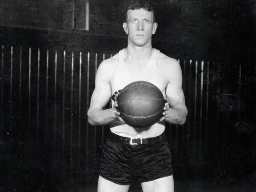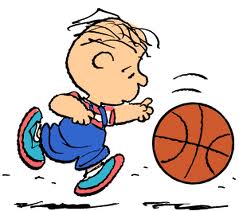[9-minute read]
Just down there, in the He Said/She Said section of this here site, is the latest quotation that got me to thinkin‘…
The citation is from James Naismith, in 1892, weeks or months after he scribbled down the 13 Rules of the game he had just invented. He was far too humble to call it “The Naismith Game” or anything like it, so he called it “Basket-Ball” “because there’s a [peach] basket and a ball, so…” I saw a reference in something I’d read to what might have been the second thing he wrote about his new baby, this sport he’d been asked to design in order to give young Christian men — it was invented at the YMCA’s International Training Centre, after all — a way to keep in shape during a Massachusetts winter. (And this, from a Canadian! Perhaps there was no ice rink at the Springfield YMCA? Maybe he held an anti-hockey grudge? Or — horrors! — he didn’t know how to skate?) Anyway, this was the reference, a copy of which hangs in the Naismith Museum:
“THE PHYSICAL AND MENTAL REQUIREMENTS OF BASKET-BALL”
“Agility, accuracy, alertness, cooperation, initiative, skill, reflex judgment, speed, self-sacrifice,
self-confidence, self-control and sportsmanship.”
There are 12 qualities that he wanted the game’s disciples to know and strive for. And I couldn’t help noticing how close they come to alphabetical order! (So yes, I’ve given Coach Naismith a little editorial help in what follows.) In the interests of obsession and whimsy, let’s think of them not only in this (improved) order but also with my (mainly) approving comments on Dr. Naismith’s “requirements” after each one:
ACCURACY. When modern hoopswise guys talk about “athletic ability” and the physical prowess of prospects and pros, they routinely ignore this one. They favour sprinters, long-armed discus-throwing types, jumpers and other track’n’field demonstrations of “athleticism”. Even 128 years later, we need to be reminded that hand-eye coordination, the ability to make that leather globe go through an elevated fruit bucket (or between flailing limbs to an open teammate) is fairly important, too. Cooz. Earl the Pearl. Nash. Steph. KD. Luka. Accuracy.


